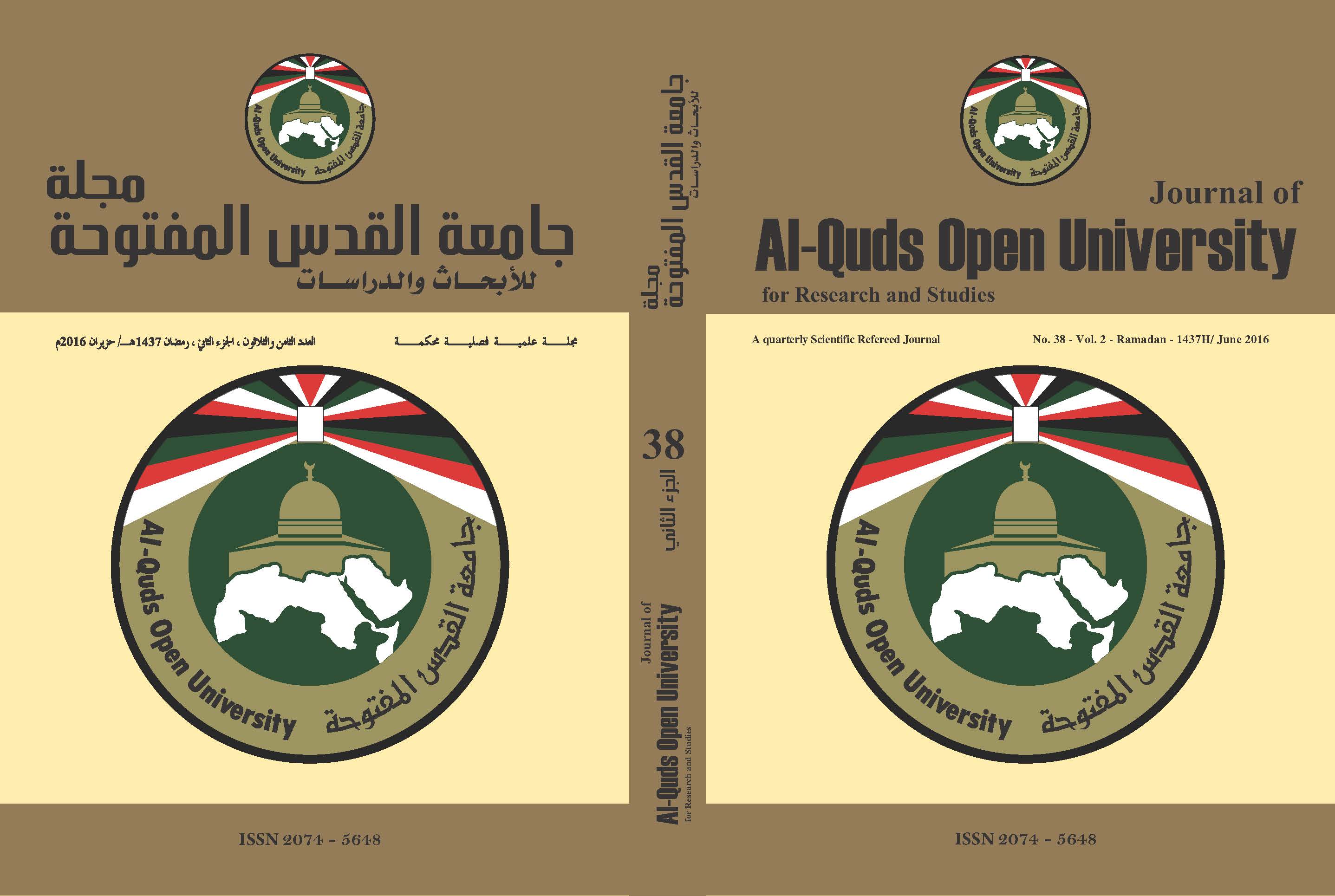The Development of the Political Thought of the Christian Leaders in Palestine from 1914 to 1922
Keywords:
the Political Thought, the Jewish Immigration, Christian leaders, PalestineAbstract
This study is about the development of the political thought of the
Christian leaders in Palestine (1914- 1922) , that is, from the beginning
of the World War 1 until the authentication of the League of Nations of the
British Mandate on Palestine. These Christian leaders adopted a political
ideology that represented its own characteristics in seeing independence
from the Ottoman Empire in the framework of the Arab endeavor and the
unity with Syria. It was possible to see the development of this ideology
through the awareness of the dangers of the Zionist program, the Jewish
immigration and the transfer of land to the Jews. The Christian leaders had
practiced the political work in partnership with the Islamic leaders whose
allegiance to certain families is their priority. The political work of Christian
leaders avoided family power and replaced it with the formation of other
associations and frameworks that represented the Arabs of Palestine, in
addition to that they were part of the leadership of the masses, who guided
the direct action. They refused to form any party with a Christian religious
background which British encouraged, and so their political thought
continued to develop.
Downloads
Published
How to Cite
Issue
Section
License
- The editorial board confirms its commitment to the intellectual property rights
- Researchers also have to commit to the intellectual property rights.
- The research copyrights and publication are owned by the Journal once the researcher is notified about the approval of the paper. The scientific materials published or approved for publishing in the Journal should not be republished unless a written acknowledgment is obtained by the Deanship of Scientific Research.
- Research papers should not be published or republished unless a written acknowledgement is obtained from the Deanship of Scientific Research.
- The researcher has the right to accredit the research to himself, and to place his name on all the copies, editions and volumes published.
- The author has the right to request the accreditation of the published papers to himself.













_2.png)
_.png)
_2.png)
_1.png)
_.png)

